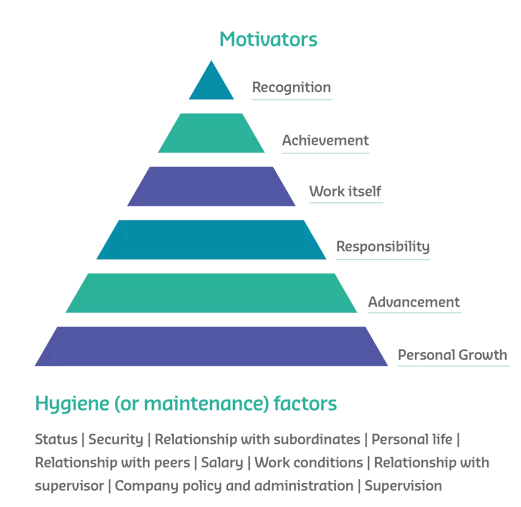
Let's talk non-financial employee rewards
30 July 2021
You understand the power of recognition and the importance of employee rewards. Still, the type of employee rewards your people are interested in may surprise you. Money talks. Especially during times of financial crisis, but there's also a place for non-financial rewards within your recognition strategy. Read on to discover the employee reward ideas that will enhance employee engagement in your business.
Are you looking for new employee reward ideas?
Employee rewards… there are so many options to choose - eVouchers, cashback, bonuses… Are all employee reward examples financial? More importantly, what power do non-financial employee rewards have?
Employee rewards ensure your workforce feels valued for their efforts and achievements. An impactful recognition strategy, combined with the right employee rewards, can incentivise, motivate, engage, energise and help you retain your talent.
Effective employee rewards = higher employee engagement, productivity, and retention levels!
Cost-effective and sustainable employee reward ideas
The cost of doing business remains high, and the National Minimum Wage will rise in April 2024, significantly increasing the payroll for many companies. The financial implications will differ for all, but when operating costs increase, unless a business can recoup the extra expense by passing it on to their clients and consumers, they’ll aim to cut back spending in other areas.
Employee rewards, especially when financial, go beyond personal achievements, factoring in overall business performance. The bottom line is that a business can only offer financial rewards if the funds are available.
Non-financial employee rewards are more important than ever!
Offering non-financial employee rewards is a cost-effective way to engage, motivate, and retain your talent.
Have you read our blog - How Maslow's Hierarchy of Needs Can Transform Your People Strategy?
Exploring Maslow’s renowned theories, summarised through his hierarchy of needs, we explain the critical role recognition has in the workplace. It’s an eye-opening read, helping to explain the theory while providing new employee reward ideas that go beyond ad hoc gifts.

Harness the power of non-financial employee rewards!
Maslow’s motivational pyramid offers a clear vision of what employees find rewarding - what genuinely motivates them to continue on a specific path. Interestingly, none of the motivators listed are directly financial, although employees advancing their careers would expect a pay rise to correspond with additional responsibilities.
Use these motivators to guide you towards non-financial employee reward ideas!
Non-financial employee rewards to implement today
Having an employee reward strategy is essential, and while some require long-term thinking and investment, you can implement others immediately.
The power of praise…
A thank you costs nothing; a note to say, ‘job well done’ takes no time. These small but impactful actions form part of a recognition culture.
-
67% of employees consider praise and commendation from line managers to be effective motivators.
-
63% of employees believe that attention from senior leaders is also a great way to recognise employees for a job well done (McKinsey & Company).
Effective as an employee reward - thanks and praise enhance relationships between employees and employers, helping your people feel valued whilst building trust and loyalty.
The importance of time…
Offering extra paid time off is a non-financial example because there's no money exchanging hands. Still, time is money, so there is a cost to the business in reduced productivity.
Do the pros outweigh the cons? That’s the question to ask yourself.
Reduced productivity is a negative consequence of giving employees additional paid time off, but it pales into insignificance when we consider the pros.
We all love our weekends and holidays, so offering your teams a surprise day off - in addition to their annual leave allowance - will definitely put a smile on their face.
A healthy work-life balance is essential, allowing employees to experience more of what matters. Whether that’s time with the family or simply time to rest, you can bring more joy to the lives of your people.
A tick on the list of pros for your people, but what about your business?
Your employees want you to show an authentic interest in their wellbeing. By accepting the slight drop in productivity you’ll experience by giving them an extra day off as an employee reward, you’re proving that you’re walking the talk when it comes to workplace wellbeing.
As a result, you can add the benefits below to your list of ‘pros’:
- A physically and mentally healthier workforce.
- A rise in employee engagement.
- Increased motivation.
- Higher rates of employee retention.
-
A company culture that improves talent acquisition and more!

Non-financial employee rewards to build into your long-term recognition strategy
We may be focusing on non-financial rewards during this blog, but it’s essential to remember that the employee reward ideas we’re discussing shouldn’t replace financial rewards.
Financial employee benefits and incentives matter, so much so that they can be the difference between an employee choosing to stay or go.
Find a balance. Businesses use employee rewards to encourage the repetition of desired behaviours. As Maslow’s hierarchy proves, there’s more to motivation than money.
Discover what employee rewards mean the most to your people and build an inclusive strategy combining financial and non-financial elements.
Introducing the employee reward ideas your people will love!
Training and development…
Personal growth is the first motivator in Maslow’s hierarchy; employees achieve growth by gaining new skills and experiences.
Your learning and development team nurture your talent so they can advance with the business, but is L&D built into your recognition strategy?
Career progression opportunities are essential for nearly 49% of people when choosing an employer (Randstad).
What better way is there to recognise achievement, to prove that you believe in and are committed to your employees than by investing time and money in their development?
Training and development opportunities create empowered, motivated, and loyal employees, making them an investment that yields a return.
Advancement
Second in Maslow’s hierarchy is advancement. When employees achieve growth and new skills, the opportunity to advance must come next. If a promotion or more senior role is yet to become available, create opportunities to lead on projects to keep the momentum going so they’re ready for the next step.
The ultimate employee reward - a promotion cements your appreciation. Employees feel valued and recognised, understanding they’re critical to your organisation’s success.
Advancement isn’t for everyone, and no employee is the same. Some will have a clear path with ambitions to ‘make it to the top’ while others prioritise happiness and stability.
Read the room, know your people, and offer the employee rewards that matter most.
Employee rewards that open up a world of opportunities… it’s the Pluxee Effect!
If you’re seeking monetary rewards to complement your non-financial strategy, look no further. Pluxee UK has the perks your people will love!
Our eVoucher Codes and eVoucher Cheques are cost-effective for your business and inclusive of the varied interests of your people. As employee rewards go, they’re perfect for saying thank you or delivering a birthday treat.
For a longer-term solution, you can use our Pluxee Card in three ways – an employee benefit, an employee reward, and an employee incentive solution. Load funds onto the Pluxee Card and stretch its value even further when your people use it to earn up to 15% cashback at over 80 participating retailers.
If you’re unsure where to start creating your employee rewards strategy, we can help. Request a call with one of our employee engagement consultants today, and they’ll help you build an employee reward strategy that will stand the test of time.
Sources:





